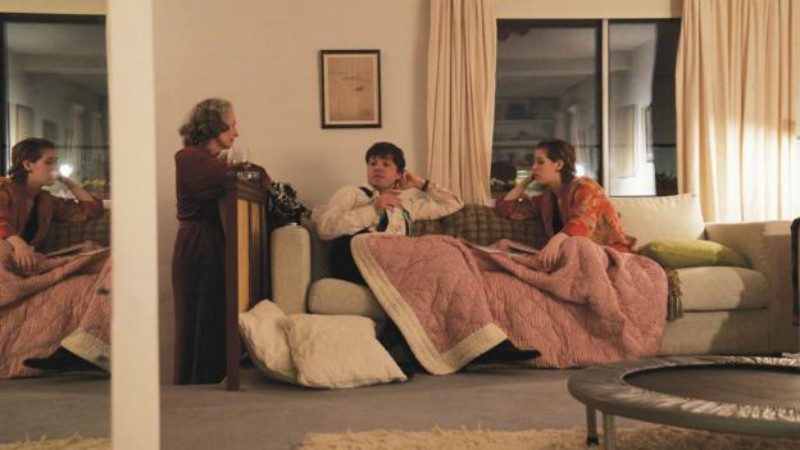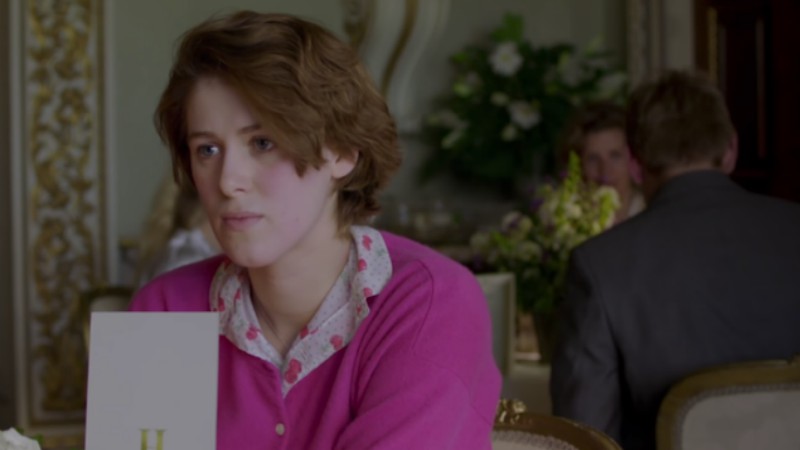Julie (Honor Swinton Byrne) is a film student at the fictional Rainham Film Academy. She has to grapple with the death of her abusive lover Anthony Reeve (Tom Burke) while also finalising her graduation film, called The Souvenir. Her doting mother Rosalind (Tilda Swinton, who also happens to be the actress’s mother in real life) is very supportive of her creative ambitions, even if she’s hesitant to give her daughter £10,000 in order to finish the project.
Joanna Hogg has crafted yet another highly personal and lyrical tribute to filmmaking. When Lucie explains to her tutors that lack of titles and the unusual structure of her graduation film liberate her as an artist, it is obvious that the comment extends to the director Joanna Hogg. They proposed that the young woman abandons her audacious project it in favour of a more formulaic and commercially viable approach. Fortunately for us, neither Lucie nor Joanna heeded their advice. The Souvenir is also a commendable exercise of metalanguage. The vast studio settings appear on television monitors. The very house where Julie lives with her mother resemble her film school. Filmmaking and reality blend seamlessly.
This is also a movie doused in melancholy and poetry. The vivid dreams and the colourful ambitions of youth – some destroyed, some fulfilled – are portrayed in all of their magnificent beauty. And Lucie isn’t alone. Other students – particularly the flamboyant and confrontational Patrick (Richard Ayoade) – embark on Julie’s journey, collaborating and supporting her throughout. Filmmaking (particularly fiction) is barely a lone occupation. Lucie must share her work and her dreams with other students in order to succeed.
The 1980s indie soundtrack is utterly British and absolutely spectacular, providing a very fine finishing touch to the complex and multilayered narrative, performances and visuals. I attempted to write down the name of the songs and artists as the final credits rolled but wasn’t able to do it in the few seconds provided. I hope they do release it on Spotify, or elsewhere. The mysterious lyrics “Is that all there is, is that all there is” are still ringing in my head.
The Souvenir: Part II showed at the 69th San Sebastian International Film Festival, when this piece was originally written. It shows in October at the BFI London Film Festival. In cinemas on Friday, February 4th. On Mubi in April. Also available on other platforms. This inherently British drama was produced by BBC Films and the BFI.










